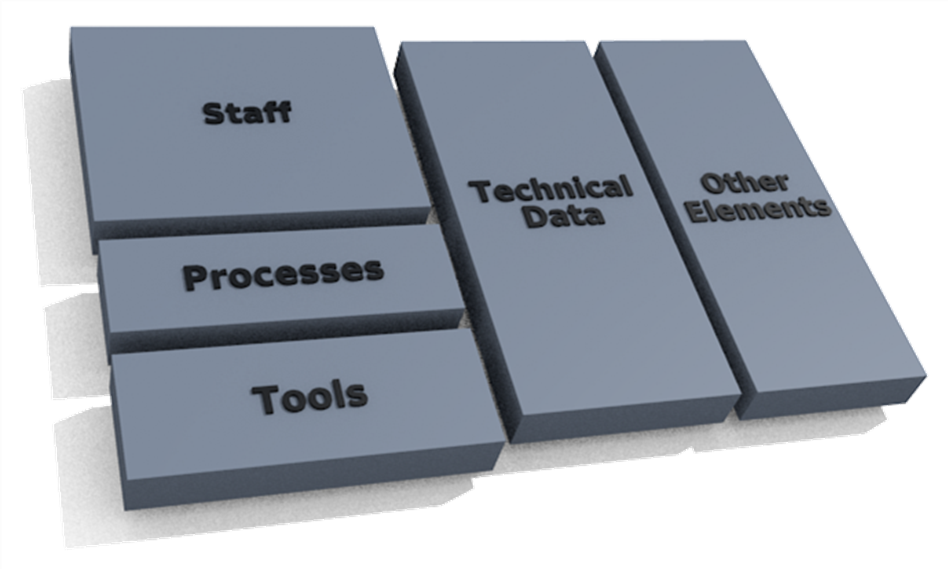
| Home | FAQs | Book Contents | Updates & News | Downloads |

What is the secret to building a successful oil company? Of course it is not about doing a single thing right but rather about not doing any one of a hundred things wrong. The challenge for those in charge is to select which aspects to focus on. In 2011 a study from the CDA, discussed technical data with senior executives from more than 30 North Sea based oil companies. The result of those conversations can be seen in this figure, it summarises the contribution that various elements make towards the overall success of those companies. Now, of course, the study did set out to understand the role of data and measure the impact that it has on corporate success, but the results look appropriate to me (I am biased of course).
If the technical staff in your organisation are not up to the tasks you set them then your company will fail. So we make sure that we have good staff, applying repeatable processes with reliable tools. There will be a major department focused just on the staff (Human Resources) ensuring the right people are hired, trained and suitably rewarded.
If there is no reliable data then you might as well make decisions, about where to explore, how to develop and the best way to produce, by tossing a coin. Reliable data is the ingredient that consistently ensures one company can outperform another, reliable data is the difference between an average CEO and a great one. What would happen if all your data was suddenly lost? How much would your share-price drop when that news leaked out? Having the best staff in the world will have little benefit if the data is not available.
Of course we all want all our data to be reliable, how can this best be achieved? Of course, like running a company, it is about ensuring we don't do any one of a hundred things wrong. Most people don't set out to deliberately make data unreliable, the issues that most often cause data quality busts come from interactions between people, especially people in widely separated departments. Over the last twenty years we have learnt what needs to be done to improve data handling, we have tools like maturity modelling, information flow mapping, change management, data governance and the various other topics that I have written about at length both in this column and my book. The key is to invest enough to improve data handling. Having a major department that looks after technical data would be a good start, as long as that is not the IT department, their focus should be on tools and infrastructure.
An army marches at the speed of its slowest soldier, the value a company generates is limited by the business activity it is least good at. Ask your engineers what frustrates them most in their day-to-day work and see how many complain about a shortage of reliable data.
Article 71 |
Articles |
RSS Feed |
Updates |
Intro |
Book Contents |
All Figures |
Refs |
Downloads |
Links |
Purchase |
Contact Us |
Article 73 |